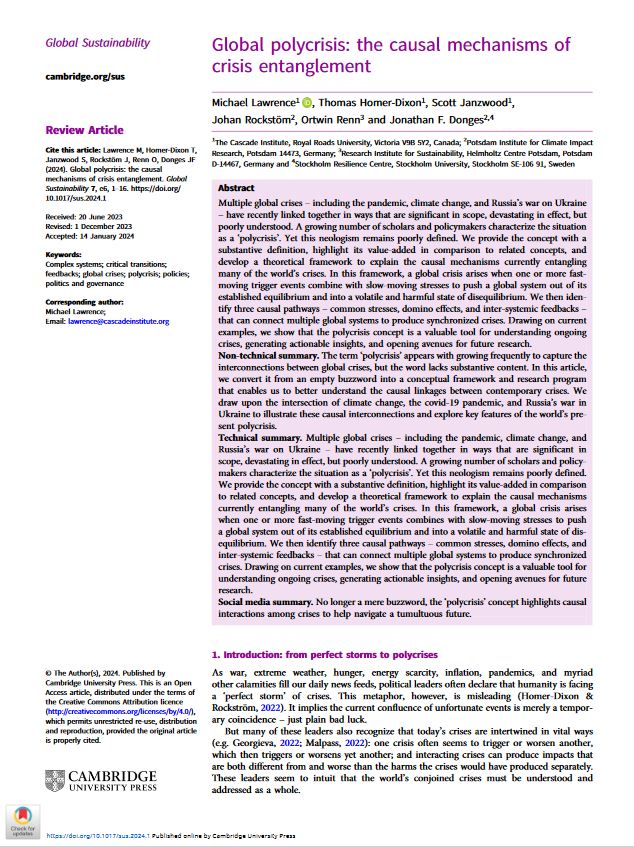On January 17, 2024, the Cambridge University Press journal Global Sustainability published the peer-reviewed, Cascade Institute-led paper, “Global Polycrisis: The causal mechanisms of crisis entanglement”. The paper leads a special issue of Global Sustainability titled “Polycrisis in the Anthropocene”.
Paper summary: Multiple global crises—including the pandemic, climate change, and Russia’s war on Ukraine—have recently linked together in ways that are significant in scope, devastating in effect, but poorly understood. A growing number of scholars and policymakers characterize the situation as a “polycrisis.” Yet this neologism remains poorly defined. We provide the concept with a substantive definition, highlight its value-added in comparison to related concepts, and provide a theoretical framework to explain the causal mechanisms currently entangling many of the world’s crises. In this framework, a global crisis arises when one or more fast-moving trigger events combines with slow-moving stresses to push a global system out of its established equilibrium and into a volatile and harmful state of disequilibrium. We then identify three causal pathways—common stresses, domino effects, and inter-systemic feedbacks—that can connect multiple global systems to produce synchronized crises. Drawing on current examples, we show that the polycrisis concept is a valuable tool for understanding unfolding crises, generating actionable insights, and opening avenues for future research.
Dr. Michael Lawrence is a Fellow at the Cascade Institute.
Dr. Thomas Homer-Dixon is the Founder and Director of the Cascade Institute.
Dr. Scott Janzwood is the Research Director at the Cascade Institute.
Prof. Dr. Johan Rockström is the Director of the Potsdam Institute for Climate Impact Research (PIK) in Potsdam, Germany.
Prof. Dr. Dr. Ortwin Renn is an Affiliate Scholar at the Research Institute for Sustainability, Helmholtz Center Potsdam.
Dr. Jonathan F. Donges is the Co-Leader of the FutureLab on Earth Resilience in the Anthropocene and Working Group Leader on Whole Earth System Analysis at the Potsdam Institute for Climate Impact Research (PIK) in Potsdam, Germany.

